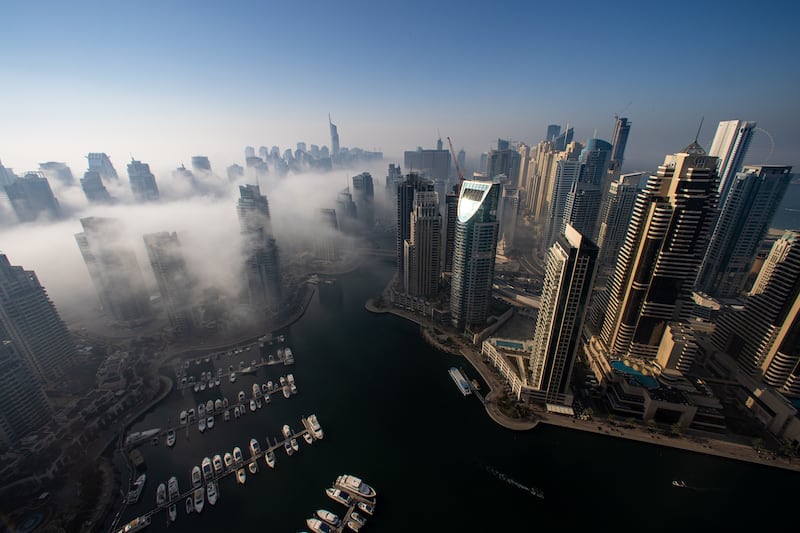The Bitcoin boom has captured the world’s attention, quadrupling in price since November 2022. This is not an outlier.
Cryptocurrencies such as Solana, Telegram's Ton, and Cardano's Ada are posting numbers that make traditional markets look asleep at the wheel.
These digital tokens have consistently outperformed the Nasdaq in the past 12 months, with Solana's market cap expanding nine-fold and Ton and Cardano more than doubling in value.
As they grow, the creators of the digital tokens are looking for a regulatory environment that will nurture their growth, not work against them.
In an interview with crypto news site CoinDesk last week, Raja Kumar, president of the Financial Action Task Force (FATF), said less than 30 per cent of jurisdictions worldwide have begun regulating the crypto sector as of June 2023.
More regulators have introduced tough measures that restrict the growth of crypto companies, citing consumer protection concerns.
It is the lack of jurisdictions with healthy regulations and the growing crypto “regulatory winter” that have resulted in companies exploring new growth markets.
World regulatory map
Finding a country that is conducive to being a crypto hotspot has become increasingly difficult of late.
China has banned cryptocurrencies since 2021, while India banned several crypto exchanges from operating in the country in December. This affects 40 per cent of the planet’s population.
In the US, FTX founder Sam Bankman-Fried was jailed for 25 years last week for his role in the 2022 collapse of the crypto exchange, while Binance founder Changpeng Zhao is also facing jail time as part of his plea deal with the US Department of Justice.
New York state has among the most rigorous, labour-intensive crypto licensing in the world, but not the most. That title is reserved for Europe.
The EU is drafting what will be, arguably, the world’s most powerful crypto laws that will allow governments to regulate crypto companies beyond the eurozone, with penalties up to 12.5 per cent of a firm’s annual turnover.
The European Securities and Markets Authority fines are more than six times the rate of the EU's General Data Protection Regulation, which has raked in billions of euros.
The European Central Bank’s director general for market infrastructure and payments, Ulrich Bindseil, made his views clear about cryptocurrencies in a February blog post, stating that “the fair value of Bitcoin is still zero” and they are a risk to society.
Drafting stricter laws is not isolated to Europe.
Traditional crypto hotspots, including The British Virgin Islands and the Caymans, passed legislation last year requiring crypto businesses to undertake heavy legal obligations or cease-and-desist in the face of pressure from western financial regulators to crack down on digital asset companies.
In Asia, Singapore banned public crypto advertisements in 2022 and, more recently, the use of local credit cards to buy digital payment tokens.
It has also created steep capital reserve requirements, requiring banks to begin holding $125 of capital for every $100 in crypto assets exposure, such as Bitcoin.
In short, regulatory winds are compelling crypto banks, institutional investors and aspiring Web3 founders to search for a new home.
Numerous global crypto companies have expressed that they need a welcoming, crypto-friendly country that plays by the books – which won’t leave them out in the cold.
Crypto capitals of the world
Institutional adoption is rising. The open secret in the UAE is that banks and financial services are actively looking for ways to provide virtual assets services to their clients.
The UAE is not alone. Switzerland has turned its traditional financial banking centre into a leading digital assets capital, despite its small size as well.
There's also Miami, which is turning into the crypto financial capital of the western world. This direction is driven by the city's mayor, Francis Suarez – who accepts part of his salary in Bitcoin – and has pushed for regulation that enabled San Francisco-based crypto exchange Kraken, and Wyoming headquartered crypto bank, Avanti, to become chartered banks.
Mr Suarez, whose net worth more than doubled to $3.5 million in 2023 compared to the year before, according to Bloomberg, is also exploring ways to accept taxes and pay municipal employees in Bitcoin.
Miami has attracted about $1.2 trillion in assets under management since 2019, Mr Suarez said in a 2021 NPR interview. By the end of last year, the city was the ninth-wealthiest in the US in terms of millionaire head count, despite having a population of less than 500,000, according to London-based investment migration consultancy Henley and Partners.
Investors and top talent heading to UAE
The UAE is also carving a niche as one of the next high-growth crypto capitals of the world, with institutional investors, hedge funds and financial behemoths moving in.
Standard Chartered Bank, Franklin Templeton and Mastercard are moving or expanding their latest digital assets services, assets and, increasingly, headcount in the country.
The family office of Ray Dalio, founder of the world’s largest hedge fund Bridgewater, and quant investing giant AQR Capital Management are setting up shop in Abu Dhabi.
Brevan Howard is doubling its headcount in the capital from 60 people to 120. These aren't simply votes of confidence, they are strategic plays by three prominent institutional investors.
Ninety minutes up the motorway from the UAE capital, 40 funds have registered in Dubai as of July 2023, a third of which arrived in the preceding 12 months, primarily from London and New York.
The movement of institutional money to the UAE is also attracting crypto companies. Crypto.com, Coinbase, the US’s Paxos, Nomura’s Laser Digital and Circle, the operator of the $28 billion US stablecoin, have all set up in the country.
Second, world-class talent is moving here. Telegram founder Pavel Durov moved to Dubai and established the multibillion-dollar digital coin Ton for the company’s 900 million users.
Guillaume Pousaz, founder and chief executive of FinTech Checkout.com, which has been valued at $9.4 billion and processes crypto payments for Crypto.com globally, lives in Dubai.
Charles Hoskinson, co-founder of Ethereum and Cardano, which has a market capitalisation of $21.14 billion, has also been seen in the UAE, but this is just the beginning.
They’re not only coming for the warm climate; it's the warm reception. These are not basic business development activities. They are a strategic alignment underpinned by the UAE's intentional fundamental plans.
Two of Dubai's upcoming anchor crypto forums, Token2049 and the Dubai FinTech Summit, which will be held in April and May respectively, are designed to attract crypto innovators looking for a supportive environment.
The Gulf country has six regulators issuing crypto-enabling licences that are providing “rules of the road” for working companies.
It has created a mission-focused regulator in the UAE, in the form of the Dubai Virtual Asset Regulatory Authority.
Abu Dhabi Global Market, or the UAE capital's Wall Street, introduced regulations last year to make it easier for decentralised crypto companies to operate there and, separately, to issue digital tokens. Similar to virtual gift cards, tokens are ultimately digital assets that you can own, trade, or use for specific purposes online.
The UAE Central Bank has allowed legitimate crypto businesses to open bank accounts, which is often a major challenge for crypto multinationals. The country is working with decentralised financial businesses to find solutions to real world use cases, rather than build obstacles to operate.
Local use cases
Customers in the UAE can buy dinner with cryptocurrencies at a growing number of restaurants, or groceries on the Kuwaiti-founded delivery app Talabat with crypto gift cards from third-party apps.
People can even buy homes through Damac, one of the country’s largest real estate companies, through third-party apps in digital currencies including Ether and Bitcoin.
These use-cases aren’t just delivering services – they’re gradually building tomorrow’s economy. How we transact in money is fundamental and crypto adoption helps bring 21st century “plumbing” to the financial economy.
Despite the UAE’s curated atmosphere for growth, there are hurdles that companies could face while seeking to expand. UAE regulators are stepping up enforcement and raising the bar high with strict Know Your Customer rules.
Watch: Bitcoin is essential for small businesses
Video: Bitcoin not a threat and essential for small businesses

Securing a crypto licence for full operation from one of the country’s financial authorities is a significant investment. Required tasks include acquiring a licence, hiring and building up a client pipeline.
The race for presence in one of the world’s few well-regulated and crypto encouraging environments won’t come cheap. As more crypto pioneers land in the country, competition is heating up gradually.
Sam Blatteis is chief executive of The Mena Catalysts, a market entry firm for Web3 multinationals expanding in the Gulf economies






